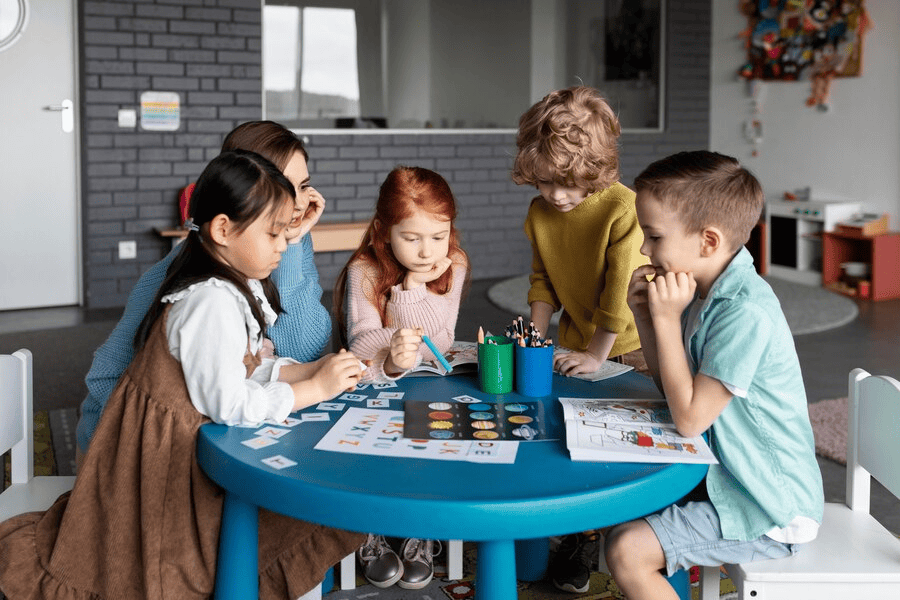Applied Behavior Analysis (ABA) therapy is an evidence-based approach designed to support children with developmental delays, enhancing their learning and behavioral skills. By utilizing positive reinforcement strategies, ABA programs target specific goals, such as improving communication, social interactions, and daily living skills. These tailored interventions cater to each child’s unique needs, ensuring a personalized experience that fosters growth and independence. With the guidance of trained professionals, children can develop essential skills, build confidence, and reach new heights in their development, paving the way for a brighter future.
Understanding ABA Therapy: Principles and Practices
Applied Behavior Analysis (ABA) therapy is grounded in the principles of behaviorism, focusing on the relationship between behavior and environmental factors. By analyzing these interactions, therapists can identify specific behaviors to reinforce or modify. ABA utilizes a structured approach, employing techniques such as discrete trial training and natural environment training to promote skill acquisition. This methodology allows therapists to create individualized programs tailored to each child’s needs, ensuring that interventions are effective and engaging. Understanding these principles helps parents and caregivers appreciate the significance of ABA therapy in fostering positive behavior changes and skill development.

Core Principles of Behaviorism in ABA
Applied Behavior Analysis (ABA) is deeply rooted in behaviorism, which emphasizes observable behaviors and their relationship with the environment. This foundation allows therapists to identify the antecedents (triggers) and consequences of behaviors, enabling targeted interventions. By understanding these core principles, therapists can effectively modify behaviors to promote positive outcomes, fostering skill development in children. This scientific approach provides a structured framework for analyzing and addressing behavioral challenges.
Techniques for Skill Acquisition
ABA employs various techniques to facilitate skill acquisition in children, with discrete trial training (DTT) and natural environment training (NET) being among the most effective. DTT involves breaking down skills into smaller, manageable components, allowing for focused instruction and reinforcement. Conversely, NET takes advantage of everyday situations, promoting learning in natural contexts. By combining these techniques, therapists can create a comprehensive learning experience that caters to each child’s unique needs and preferences.
Individualized Programs for Unique Needs
One of the strengths of ABA therapy is its emphasis on individualized programs tailored to each child’s specific needs. Therapists conduct comprehensive assessments to identify strengths, weaknesses, and areas of concern. Based on this information, they design customized interventions that address the child’s unique challenges and goals. This personalized approach not only enhances engagement but also ensures that therapy is relevant and effective, maximizing the potential for meaningful progress in various skill areas.
The Importance of Data-Driven Decisions
Data collection is a fundamental aspect of ABA therapy, providing insights into a child’s progress and the effectiveness of interventions. Therapists systematically gather data on specific behaviors, tracking changes over time to inform decision-making. This objective approach enables therapists to adjust strategies as needed, ensuring that the therapy remains aligned with the child’s evolving needs. Regular data analysis fosters transparency and accountability, empowering families to actively participate in their child’s development journey.
The Role of Parents and Caregivers in ABA
Parents and caregivers are integral to the success of ABA therapy, as their involvement enhances the learning process. By collaborating with therapists, families can reinforce skills at home and provide valuable insights into their child’s behavior and preferences. Training sessions equip caregivers with the tools and strategies needed to implement ABA techniques consistently. This partnership fosters a supportive environment that encourages growth and development, ultimately leading to better outcomes for the child.
Individualized Treatment Plans: A Tailored Approach
One of the key strengths of ABA therapy is its emphasis on individualized treatment plans. Each child’s unique strengths and challenges are assessed, enabling therapists to develop customized interventions that target specific goals. This personalized approach ensures that therapy aligns with the child’s interests and learning style, increasing engagement and motivation. By continuously monitoring progress and adjusting strategies, therapists can adapt the plan as the child grows and develops. This flexibility fosters an effective learning environment, helping children make meaningful progress in various areas, including communication, social skills, and daily living activities.
The Role of Reinforcement in Skill Development
Reinforcement is a fundamental component of ABA therapy, serving to encourage desired behaviors and discourage unwanted ones. Positive reinforcement involves rewarding a child for displaying a target behavior, thereby increasing the likelihood of its repetition. Rewards can take various forms, including verbal praise, tangible items, or special activities. By carefully selecting reinforcers that resonate with the child, therapists create a motivating environment conducive to learning. This approach not only enhances skill acquisition but also promotes a sense of achievement and self-worth, empowering children to pursue their goals with confidence.
Enhancing Communication Skills Through ABA
Communication is a vital skill for children’s social interactions and daily functioning. ABA therapy employs various techniques to improve both verbal and nonverbal communication abilities. Therapists may use methods such as picture exchange communication systems (PECS), sign language, or verbal prompting to support language development. By breaking down communication goals into manageable steps, therapists can help children express their needs, emotions, and thoughts more effectively. Enhanced communication skills lead to improved social interactions, reducing frustration and fostering positive relationships with peers and caregivers.
Social Skills Training: Building Connections
Developing social skills is crucial for children with developmental delays, as these skills facilitate meaningful interactions and friendships. ABA therapy incorporates social skills training to help children navigate social situations and build connections with others. This training often involves role-playing, modeling appropriate behaviors, and practicing in real-life scenarios. By providing structured opportunities for social engagement, therapists help children learn essential skills such as sharing, taking turns, and recognizing social cues. As children gain confidence in their social abilities, they become more adept at forming relationships and participating in group activities, leading to a more fulfilling social life.
Addressing Behavioral Challenges: Strategies for Success
Children with developmental delays may face behavioral challenges that impact their daily lives. ABA therapy equips therapists with strategies to address these challenges effectively. By identifying the triggers and functions of problematic behaviors, therapists can implement interventions that promote positive behavior change. Techniques may include functional behavior assessments, antecedent modifications, and replacement behaviors. This proactive approach not only reduces challenging behaviors but also teaches children alternative, more appropriate ways to express their needs and emotions. As a result, children can experience increased success in various settings, including home, school, and community environments.
Collaborating with Families: A Team Approach
Successful ABA therapy involves collaboration between therapists and families, recognizing that parents and caregivers play a vital role in a child’s development. By fostering open communication and actively involving families in the therapy process, therapists can ensure consistency and reinforce skills learned during sessions. Family training and support empower caregivers to implement ABA strategies at home, promoting generalization of skills across different environments. This team approach enhances the child’s learning experience and strengthens the family unit, creating a supportive network that encourages growth and development in all aspects of life.
Measuring Progress: Data-Driven Decisions
Tracking progress is essential in ABA therapy, as it allows therapists to make informed decisions regarding treatment effectiveness. By collecting and analyzing data on specific behaviors and skills, therapists can assess the child’s development and determine whether goals are being met. This data-driven approach enables the adjustment of strategies to enhance outcomes and ensures that therapy remains aligned with the child’s needs. Regular progress reports provide families with valuable insights into their child’s growth, fostering a sense of achievement and motivating continued efforts in therapy. Ultimately, measuring progress ensures that ABA therapy remains a dynamic and responsive process, maximizing the potential for success.
Conclusion
ABA therapy is a proven and effective approach for supporting children with developmental delays. At Positive Solutions Behavior Group LLC in Lakewood Ranch, FL, we are dedicated to providing tailored interventions that foster growth, communication, and social skills in a nurturing environment. Our team of experienced professionals is committed to empowering families through individualized therapy programs that meet each child’s unique needs.
If you’re seeking compassionate and effective support for your child, contact us at 859-282-0400. Together, we can work towards positive behavioral changes and a brighter future for your child.






